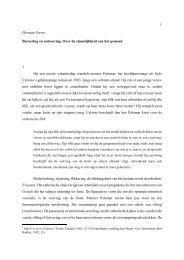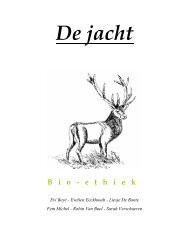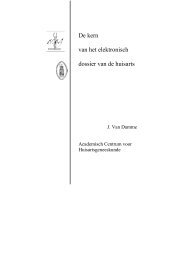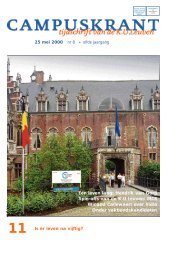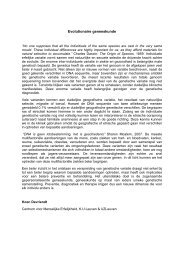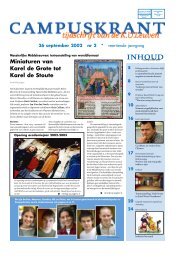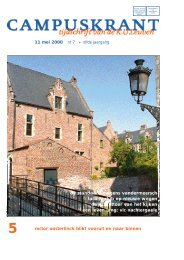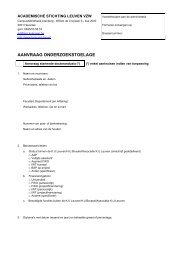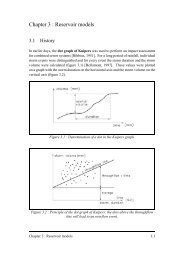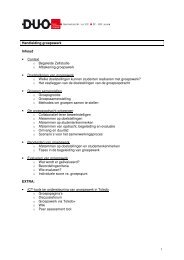EQUALITY GUIdE - KU Leuven
EQUALITY GUIdE - KU Leuven
EQUALITY GUIdE - KU Leuven
Create successful ePaper yourself
Turn your PDF publications into a flip-book with our unique Google optimized e-Paper software.
106 Equality Guide<br />
This survey was a research initiative of the UGender policy project and was sent to all<br />
staff members of Ghent University in 2006.<br />
4.2. Literature study<br />
Promotion of women at Flemish universities<br />
The underrepresentation of female researchers at universities is often explained by their<br />
relatively late entrance into the academic world, both as students and as staff. One way<br />
to investigate whether the female underrepresentation is ! in part ! just a matter of<br />
time, is to follow up a group of male and female researchers who started their academic<br />
career at the same point in time and look at the male/female ratio within this<br />
group throughout their careers.<br />
Based on data of UGent and K.U.<strong>Leuven</strong>, the figure below clearly illustrates that there<br />
is in fact a promotion problem for women at these Flemish universities 118 . This figure<br />
shows the entire academic career of men and women who received a master’s degree<br />
in the period 1983/84 ! 1986/87. From the large group of 19.985 graduates (42%<br />
women, 58% men), 2.331 graduates start out as junior researchers in 1984/85 ! 1987/<br />
88. Among these junior researchers 35% are women. Consequently, one may already<br />
notice a shift in the m/f ratio on the first step of the academic ladder. 859 researchers<br />
obtain a PhD degree before January 1998, 28% of whom are women. 294 researchers<br />
receive a senior position (not tenured), 21% are women. Thus, from the total group of<br />
157 academics who finally obtain a senior tenured job, only 19% are women.<br />
The percentage of female students at UGent in 2005/06 is 56%. The proportion of<br />
female graduates that same year is even higher (i.e. 61%). Despite this large pool of<br />
potential female researchers, female senior researchers (i.e. academics with a PhD<br />
degree) and professors are underrepresented in Flemish universities. Women researchers<br />
‘disappear’ on each step of the academic career ladder. In other words, the academic<br />
pipeline leaks. Although some argue that this information is outdated, a recent<br />
follow-up study 119 shows that the declining proportion of women throughout the academic<br />
career continues to exist.<br />
118 Deschrijver, H., Van de Velde, M.C., Van der Beken, H., Page, H., Waege, H., De Leenheer, A.<br />
(UGent), Verlinden, A., Houben, J., Billiet, J., Smedts, D., Vanden Berghe, H., Bouillon, R.<br />
(K.U.<strong>Leuven</strong>) (2001). Kernelementen doctoreren in Vlaanderen, gebaseerd op het rapport<br />
‘Kwantitatieve analyse van het doctoreren aan de Katholieke Universiteit <strong>Leuven</strong> en de Universiteit<br />
Gent.<br />
119 Vlaamse Raad voor Wetenschapsbeleid (2006). Doctoreren aan Vlaamse Universiteiten (1991-2002).<br />
Studiereeks 15, VRWB.



